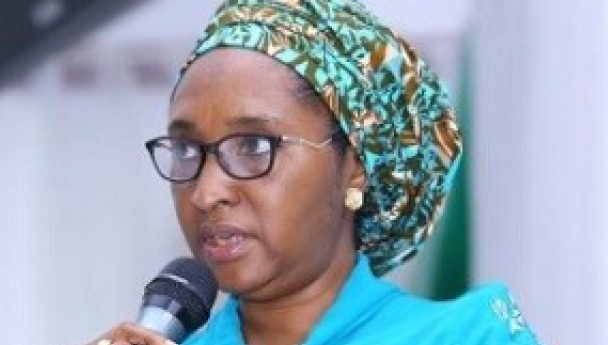Business
Nigerian govt approves 2021-2025 National Development Plan

The Federal Executive Council (FEC) on Wednesday approved the 2021 to 2025 National Development Plan (NDP) to succeed the Economic Recovery and Growth Plan (ERGP) which expired in December 2020.
The Minister of Finance, Budget, and National Planning, Zainab Ahmed, disclosed this to State House correspondents at the end of the FEC meeting presided over by Vice President Yemi Osinbajo at the Presidential Villa, Abuja.
She said the NDP was structured along with six clusters–economic growth and development, infrastructure, public administration, human capital development, social development, and regional development.
The minister said the plan had been designed to have an investment size of N348.7 trillion over the five-year period.
Ahmed said: “The Ministry of Finance, Budget, and National Planning presented a memo requesting approval for the NDP for 2021 to 2025, which is a plan that is succeeding the ERGP which expired in December 2020.
“This National Development Plan (NDP) is structured along with six clusters. The clusters include economic growth and development, infrastructure, public administration, human capital development, social development, and regional development.
“The plan is underpinned by a macro-economic framework, which projects an average real Gross Domestic Product (GDP) growth of five percent per annum over the plan period.
“Also, the plan has been designed to have an investment size of N348.7 trillion over the five-year period.’’
READ ALSO: Nigerian govt approves 2022 budget proposal of N16.39tr
She said the investment size would be contributed by the public and private sectors.
According to her, the public sector will contribute N49.7trillion or 14.3 percent of the investment size while N298.3 trillion or 85.7 percent will come from the private sector.
She stressed that the public sector component will be contributed by both the Federal Government and the states.
The minister added: “The Federal Government expenditure component is N29.6trillion, representing 8.5 percent of the total expenditure size, while the sub-national government, states, will be contributing N20.1trillion, representing 5.8 percent.
“The funding strategies for the plan have also been identified and these include broadening the tax base, enhancing the capacity of the private sector through creating investment opportunities and deliberate policy engagements and incentives.
“There will also be exploring domestic and concessioning financing sources and setting up financial investment vehicles such as growth funds and public private partnership as well as the Nigerian Investment and Growth Fund.
“The implementation of the plan requires the establishment of a strong implementation mechanism and framework that promotes performance and accountability, which is necessary for the implementation of the plan.
“There will also be a Development Plan Implementation Unit that will report to the National Steering Committee, which will be headed by the Vice President with the Minister of Finance, Budget and National Planning as vice-chair.’’
Join the conversation
Support Ripples Nigeria, hold up solutions journalism
Balanced, fearless journalism driven by data comes at huge financial costs.
As a media platform, we hold leadership accountable and will not trade the right to press freedom and free speech for a piece of cake.
If you like what we do, and are ready to uphold solutions journalism, kindly donate to the Ripples Nigeria cause.
Your support would help to ensure that citizens and institutions continue to have free access to credible and reliable information for societal development.
























